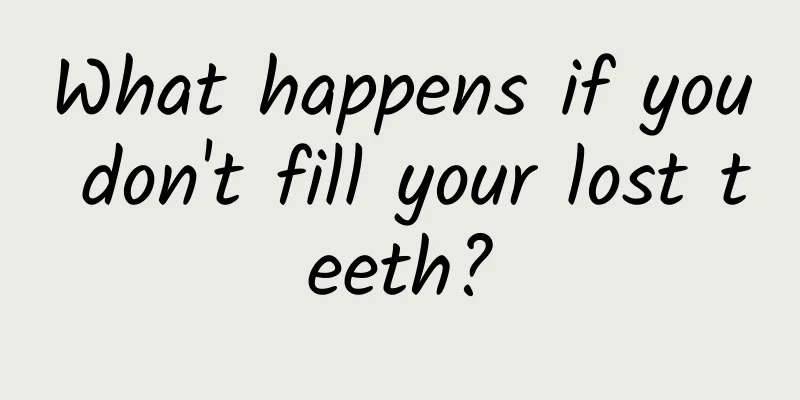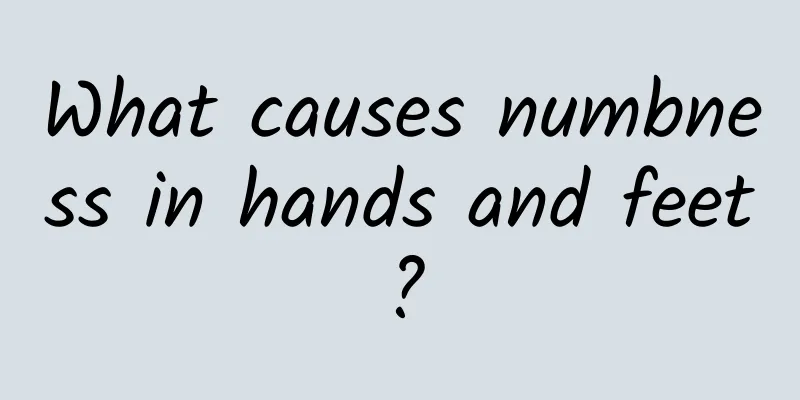What happens if you don't fill your lost teeth?

|
The importance of teeth is self-evident, but in daily life, teeth often get impacted or knocked out. Losing a tooth has a huge impact, and the most common way to deal with it is to fill it. However, after a long period of adaptation, many people find that the impact is definitely not that big, so they don’t want to go through the trouble of filling another tooth. So, what happens if a tooth falls out and is not replaced? Let’s take a look below. Old face Teeth play an important role in maintaining the appearance of the face, especially the front teeth, which have a great impact on facial beauty. Missing front teeth can make a person look less youthful and older. In addition, when most or all teeth are missing, the cheeks lose support and sink inward, the lips are no longer plump, facial wrinkles increase, nasolabial grooves deepen, the corners of the mouth sink, and the face appears visibly aged. Gastrointestinal involvementAfter teeth are lost, the first thing that deteriorates is the chewing function, and the extent of the impact is related to the location and number of missing teeth. Missing front teeth will affect the ability to bite off food, while missing back teeth will affect the ability to grind food. When the chewing function is reduced, food that has not been fully ground and mashed will directly enter the gastrointestinal tract, which will greatly increase the burden on the digestive system and affect the absorption of nutrients. If this continues for a long time, it may even cause digestive system diseases. In addition, if all teeth are missing, it will be difficult to close the lips firmly and swallowing food will become difficult. The remaining teeth suffered When a tooth is missing, the task of chewing falls on other teeth. At the same time, due to the existence of the gap left by the missing tooth, the adjacent teeth also lose their restraint and support, which greatly increases the burden on the remaining teeth. If it is not repaired for a long time, it may cause the adjacent teeth to tilt and the teeth that occlude with them to elongate, which may lead to caries and periodontal disease, further aggravating the damage to the remaining teeth. When there are fewer remaining teeth, they will bear too much bite force, which will cause rapid loss of alveolar bone, loosening of teeth or even falling out. The longer the missing teeth are and the greater the number of missing teeth is, the greater the impact will be on the remaining teeth. Unclear pronunciationMissing teeth, especially missing front teeth, can cause unclear pronunciation, commonly known as "speaking with a leaky tongue." Unclear pronunciation can have a significant impact on patients’ communication activities and even affect their mental health. Joint injuries After a tooth is missing, the chewing function of the missing tooth side is reduced, and the patient may develop the habit of chewing only with the other side. In addition, if the number of missing teeth is large or the missing time is long, the remaining teeth may be tilted or elongated, causing occlusal interference and resulting in a disordered occlusal relationship. These will affect the stability of the temporomandibular joint and cause joint damage. |
<<: What happens if you don't put your teeth in a new place?
>>: Where to massage for toothache pain relief
Recommend
Why does my stomach hurt so much that I vomit?
Generally speaking, stomach pain accompanied by v...
The efficacy and function of Moon-Watching Sand
The members' area for the Chinese medicinal m...
When to take Guizhi Fuling Pills
Guizhi Fuling Wan is a relatively common medicine...
Five common clinical manifestations of brain herniation
The most common symptoms of brain hernia patients...
How to calculate ovulation period when you want to get pregnant?
With the development of society and some populati...
Women, stop exposing yourself, as this is where the cold and dampness will enter your body
“A thousand kinds of cold are easy to get rid of,...
Blood in stool
In daily life, people sometimes bleed when they d...
My eyelids keep twitching again. What's going on?
If your right eyelid twitches all the time, you s...
Scraping weight loss method, a good figure is easily scraped out
Gua Sha is a type of traditional Chinese medicine...
What does lip and tongue inflammation look like?
The lips and tongue are very important tissues in...
How to relieve thigh pain during menstruation
Menstruation is a problem for almost every woman,...
I feel like there is something hard in my throat.
If you have a growth in your throat, it could be ...
Why do my knees hurt when I run?
Many people will find knee pain while running. Yo...
What are the side effects after the intervention?
With the advancement of science and technology, m...
Can long-term drug abuse be stopped?
Drug abuse is extremely harmful to people's p...









